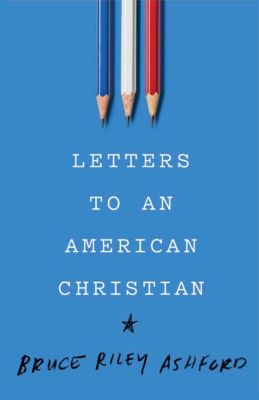It’s an age-old question, made more relevant by the insistence of media outlets and political pundits: Should pastors directly address contemporary political issues?
Some commentators argue that Christianity offers a moral framework that is directly relevant to policy issues and thus the pastor should speak to politics. At other times the argument is made that religion and politics should be kept separate and thus pastors should preach the word rather than be political pundits.
So, what should a pastor do?
Above all, he should pray for wisdom about what to say and when. Because the answer to this question is not simple or clear cut. And as he prays for wisdom, he should take into account these three hard-and-fast principles.
First, pastors should not try to separate religion and politics.
Many people think that Christians should keep their Christianity out of the political arena. But this is neither possible nor desirable. No person—whether Christian, Buddhist, Muslim, or atheist—can keep their religion from radiating outward into their public life. It’s not that they shouldn’t; they literally can’t.
You see, the Bible teaches that all people are worshipers. If we want to know a person’s religion, we should identify their god. And if we want to identify their god, we should pay attention to whom or to what that person ascribes ultimacy. That might be the God of Jesus Christ or the Allah of Muhammad. It might also be sexual freedom, wealth acquisition, or power accumulation. It might be the narcissistic worship of self. But it will be something.
The Bible also teaches that a person’s true religion can’t be kept private.
Religion is personal, but it’s not private. More than 800 times, the Bible relates religion to the “heart,” meaning the innermost aspect of a person’s being, the central organizer of his or her existence. It plays a defining role in organizing every thought, every affection, every action. The heartfelt nature of religion means that a person’s true religion, by necessity, will radiate outward into the whole of a person’s life, including a person’s politics and public discourse.
Second, pastors should recognize an appropriate separation between church and state.
Religion and politics can’t be separated. But church and state can be. And for the sake of both, they must be.
To understand why these two should remain distinct, it is helpful to think of culture using a spatial analogy: each aspect of contemporary culture—art, science, business, sports, etc.—is like a sphere. Each has its own center (reason for being) and its own circumference (limits to its jurisdiction). Thus art exists to achieve aesthetic excellence. Science exists to advance our knowledge of the natural world. More to the point, the state exists to achieve justice for the people under its purview while the church exists to disciple God’s people.
It is always tempting for the church to reach for stately power to achieve its ends. This is a temptation we must always resist. The Roman Catholic Church or the Southern Baptist Convention should not try to set itself up as the government-sponsored religion of the land. On a smaller level, individual pastors should not play the role of political pundit for their congregations; they are neither called nor competent to do so.
Instead of turning the local church into a public policy think tank or a political action committee, the pastor should disciple his people by soaking them in the Scriptures so that they can follow Christ more truly in the whole of their lives.
Third, pastors should be very careful when declaring, “Thus sayeth the Lord” in relation to a public policy issue.
Christianity is a deeply political religion because it declares that Jesus is Lord and Caesar is not. Jesus is Lord and POTUS is not. Jesus is Lord and your favorite political ideologue or talk show host is not. Jesus is Lord and material equality is not. Jesus is Lord and cultural heritage is not. And so forth and so on.
Christianity is also political in the sense that the Bible provides a transcendent moral framework that is relevant to public disputes today—about sexuality, gender, human dignity, compassion for the poor, and other significant issues.
But the Bible does not usually speak directly to public policy issues in a 21st century democratic republic. It speaks directly to the moral principles that inform those policy issues, but the move from moral principle to policy directive is quite complex. For instance, pride is often said to be the worst sin, but we don’t incarcerate people for being self-centered or cocky. And that’s just one small example of how the Bible’s moral principles don’t always translate simply or easily into public policy.
So, a pastor must be very careful when making application to politics from the pulpit. The pulpit is the sacred place where the pastor declares, “Thus sayeth the Lord.” The pastor must not make application to public policy issues unless he is confident that his words and concerns mirror those of God.
For that reason, let’s make sure we soak ourselves in Scripture. Let’s make sure that before we speak to a political issue, we are very confident that the Bible speaks directly enough to that issue. And in cases where we are not confident, let’s speak to the moral concerns but not the political application.
If not, we’ll undermine the church’s deepest and most profound political message—that Jesus is Lord—and therefore hinder our ability to minister to the broader bipartisan community.
For more from Bruce on the intersection of Christianity and politics check out his books Letters to an American Christian and One Nation Under God.
Also, here’s a video showing some recent Lifeway Research data on churches and politics:


